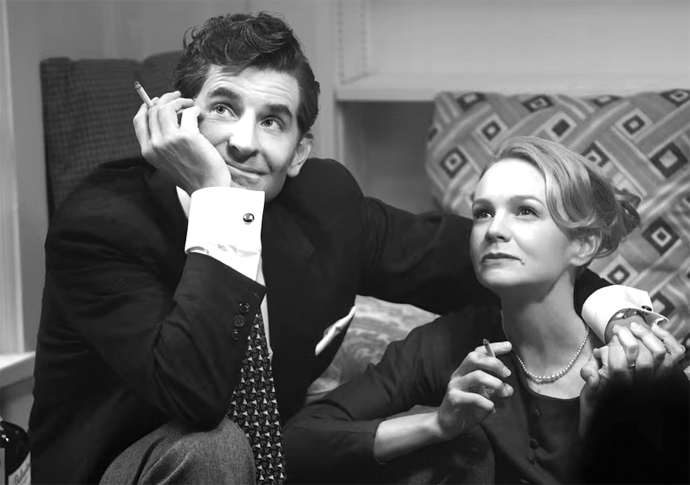Maestro: key parts missing from Bernstein biopic
Bradley Cooper plays the composer in a story that’s tragic, sad, and universal
Friday, 5th January — By Dan Carrier

Bradley Cooper and Carey Mulligan in Maestro [NETFLIX]
MAESTRO
Directed by Bradley Cooper
Certificate: 12a
☆☆☆☆
A GREY-HAIRED man places a cigarette in an ashtray, sits gently down at the piano and begins to play some of the music he has written over the years.
A TV crew and interviewer sit respectfully across from him, and once the piece is finished, dark, brooding eyes look up and say: “I still miss her terribly.”
The opening scene of this biopic of the composer Leonard Bernstein gives the audience a two-minute taste of what is to come.
We learn of Bernstein’s genius, his stellar career and the challenges he faced as a gay Jewish man when bigotry was rife. Running alongside the tale of the man who penned pieces as diverse as West Side Story as well as directing the New York Philharmonic, is the other key facet of this tale: his overloaded heart.
Following on from the opening scene, we jump backwards and meet the young Bernstein (Bradley Cooper) as he is shaken from a hangover in a garret in New York to be told he is standing in at the Carnegie as conductor.
It is a triumph – and Cooper is mesmerising as a conductor. Afterwards, he heads to a party and meets the actor Felicia Montealegre (Carey Mulligan).
We follow them as they fall for each other, become the compass in each other’s lives and careers – and then confront the torrid emotions Bernstein feels because of his sexuality.
He shows every day how much he loves Felicia, and Mulligan’s performance is superb.
The Bernstein here is a conflicted person for whom depression looks to be lurking round each corner: a loving husband and father who doesn’t want to hide his feelings for others, but knows he really should.
Perhaps it was too big an ask for the film to reveal more about his influences, his composing techniques. We are focused mainly on his relation with his wife, the impact of his sexuality on his relationships.
That does not make this a bad story, just one that is tragic, sad, and universal. Bernstein wrote incredible, genre-breaking and diverse music whose melodies and harmonies are known around the globe. While of interest to learn more about his personal life, there is a sense that a biopic of a composer could have benefitted a little more from Bernstein on a piano stool with a stubby pencil and musical notation to complete, as opposed to what happened after performances.